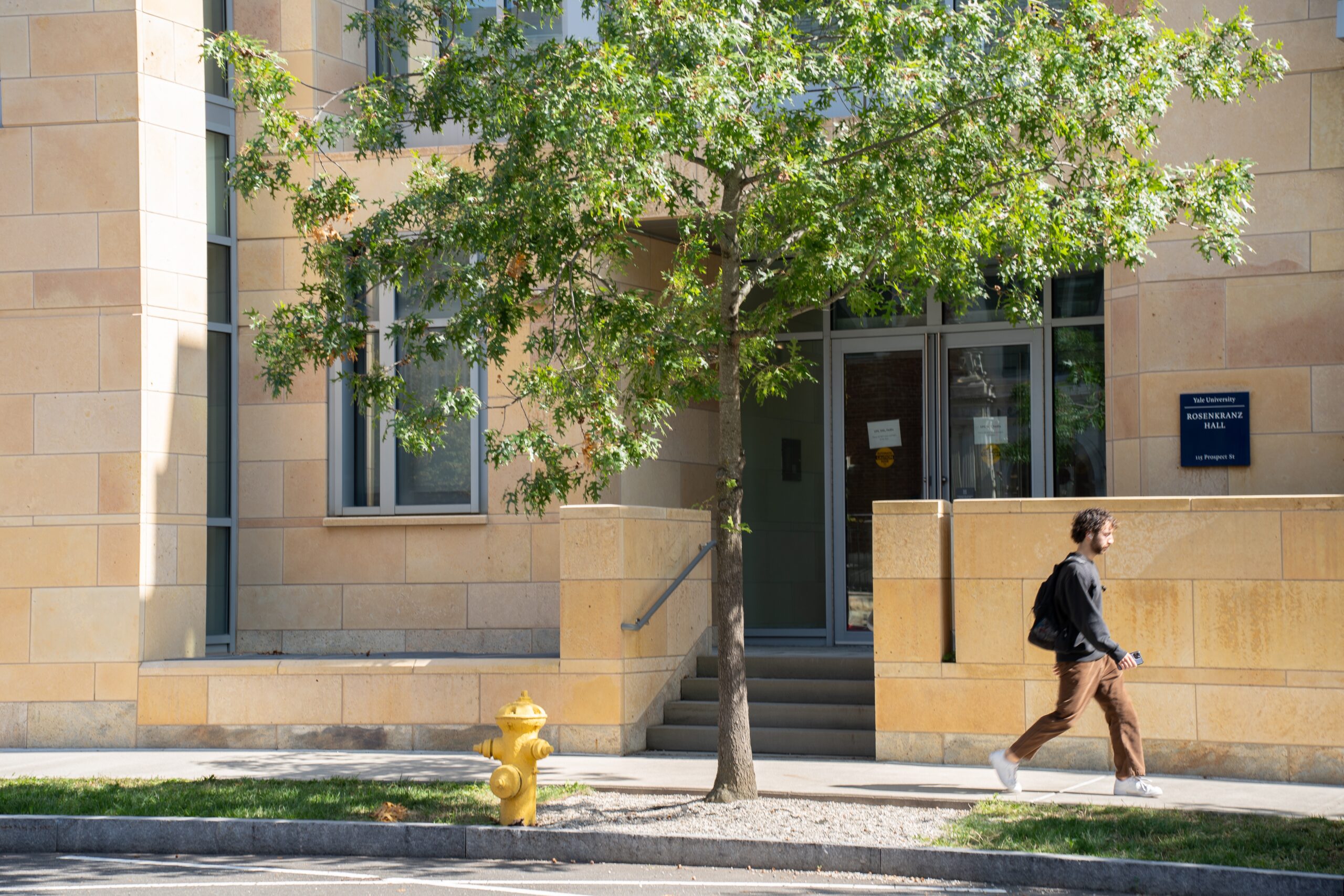Yale academics weigh in on Harris-Trump presidential debate
In interviews with the News, three Yale academics offered their perspective on the debate and Vice President Kamala Harris’ and former President Donald Trump’s performance.

Ellie Park, Multimedia Managing Editor
On Tuesday, Vice President Kamala Harris and former President Donald Trump sparred in their first presidential debate.
Hosted by ABC News at the National Constitution Center in Philadelphia, the debate — marked by policy clashes and personal attacks — offered opportunities for Harris to introduce herself to the American public and for Trump to defend his record against his new presidential opponent.
Three Yale academics the News spoke to agree that Harris came out on top during the debate, but disagree on whether it will have a lasting impact on the race.
Academics agree Harris won the debate, differ on Trump’s performance
For all three academics, Harris came out as a clear winner in the debate with her articulate policy stances, empathetic statements and ability to spar with Trump. In comparison, Trump appeared unfocused and easily thrown off by many of Harris’ discussion points and debate tactics.
“Kamala Harris’s objective was to present herself as someone who could be president, someone who can talk about the issues that voters care about. I think she did that pretty well,” professor Kevin DeLuca, who specializes in election laws and the role of local newspapers in politics, said.
Mellissa Meisels, a postdoctoral associate at the Yale Center for the Study of American Politics, and professor Jeffrey Sonnenfeld, an expert in leadership studies at the Yale School of Management, agreed.
Sonnenfeld specifically praised Harris for her presidential composure and her ability to address hot-button issues like abortion. He additionally believes that Harris commanded the debate and demonstrated a mastery of economic facts and human sensitivity that Trump did not.
“She successfully triggered his erratic, narcissistic, xenophobic, bellicose rants defending his faltering rally crowd sizes, his denial that he lost the 2020 election, his false accusations of immigrants eating neighbors’ pet cats and dogs, and his racial innuendo,” Sonnenfeld said.
But while Meisels thinks Harris won, she is not sure whether or not Trump’s debate performance will negatively affect his campaign in the weeks to come. According to Meisels, Trump’s performance was “pretty consistent with his past performances” and in line with “what people expect from him.”
Challenges, missed opportunities at the debate
While each candidate missed opportunities throughout the debate to make jabs at his or her opponent, most of the experts’ criticisms focused on Trump’s challenges with effectively critiquing Harris.
“The challenge during the debate for former President Trump was that this is a new opponent,” Meisels said. “I think that came across a little bit and that he seemed flustered.”
Sonnenfeld felt that Trump did not seize upon chances to ask about weaknesses in Harris’ economic policies, including “an inflationary $25K tax break on first time home buyers.”
According to four budget forecasters reviewed by Reuters, Harris’ economic plans, which also aim to expand the Child Tax Credit, may either reduce deficits by up to $400 billion or increase deficits by up to $1.4 trillion over the course of a decade.
Similarly, for DeLuca, Trump missed an opportunity to tie Harris “strongly” to Biden and capitalize on voter’s negative perceptions concerning the economy under the Biden administration. DeLuca criticized Trump for being unprepared to answer even “obvious” questions from the moderators.
An even bigger challenge for Trump, DeLuca noted, was Harris’ pokes on certain issues the former president cares about, like crowd sizes. Trump took every bait, DeLuca said.
Sonnenfeld also pointed to some of Harris’ shortcomings when answering moderators’ questions.
“She never directly answered a few questions — especially David Muir’s opening question, ‘Are we better off economically than we were four years ago?’” Sonnenfeld wrote. “The answer should have been a resounding YES — with succinct data points.”
Will debate make a difference?
While all three experts agreed on Harris’ debate victory, DeLuca and Meisels both told the News that they were skeptical of the debate having a lasting impact on polling and the presidential election.
“If you look empirically, debates may have a one or two point effect on the horse race,” DeLuca said. “But [there are] two problems with this: those effects are usually not permanent, so you see kind of a reversion after a little bit of time. Also, to some extent, we’re not sure whether this is non-response bias in the polls. If your candidate does really well, maybe you’re more likely to answer a poll and say you support that person versus a real change in opinion.”
Meisels added that the candidates could have convinced some undecided or centrist voters during the debate but that it would be difficult to determine through polling what portion of the electorate is “potentially persuadable.”
In contrast, Sonnenfeld took a hard line stance on the importance of presidential debates.
“Cynics about debates are wrong,” Sonnenfeld wrote. “Debates are not just cosmetic but matter greatly. Public impressions and the persuasiveness of subsequent political messaging are powerfully [affected] by the credibility and confidence projected during debates.”
Sonnenfeld pointed to examples of highly consequential debates between candidates in previous election cycles, such as the 1960 Kennedy-Nixon debate, the 2012 Obama-Romney debate and most recently the June 2024 debate between Biden and Trump that contributed to Biden’s July exit from the presidential race.
The 2024 U.S. presidential election is scheduled to take place on Nov. 5.







